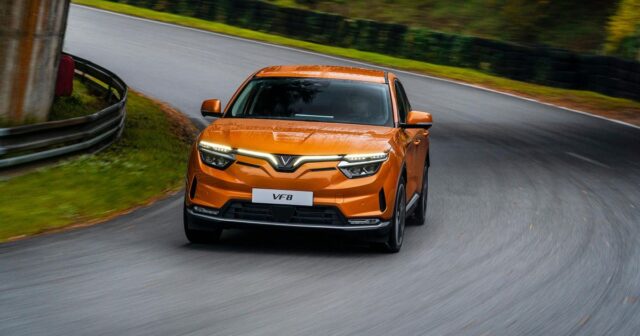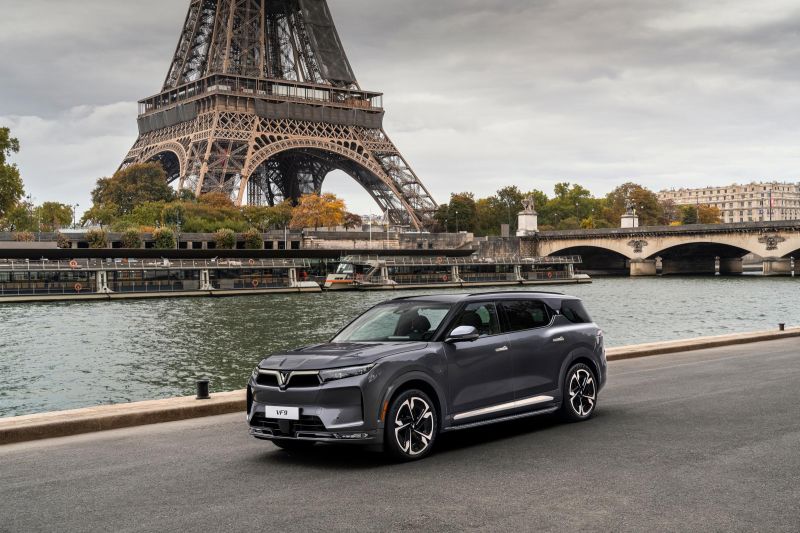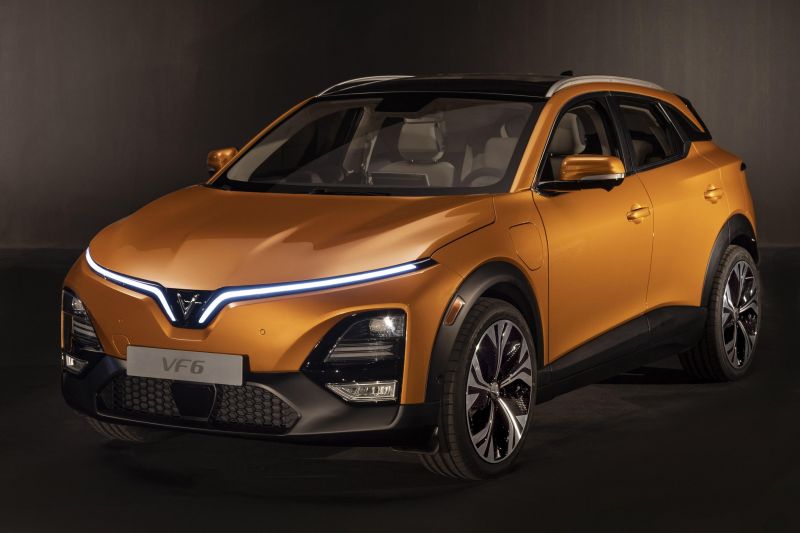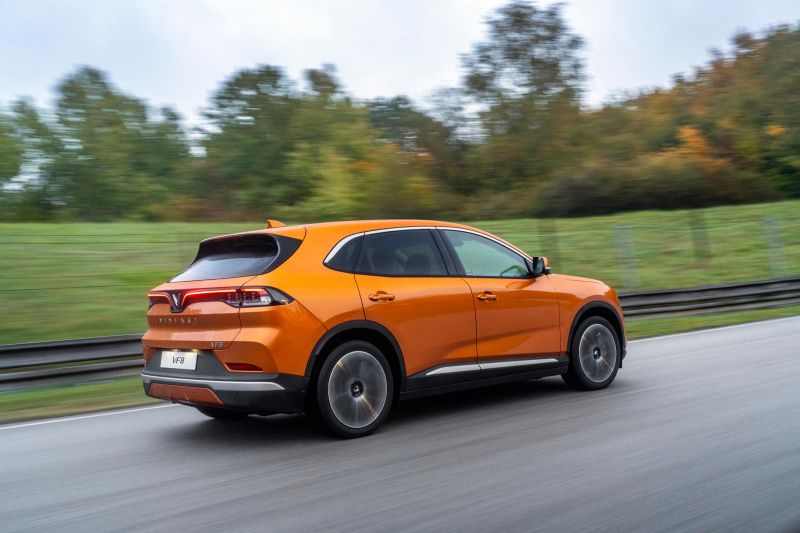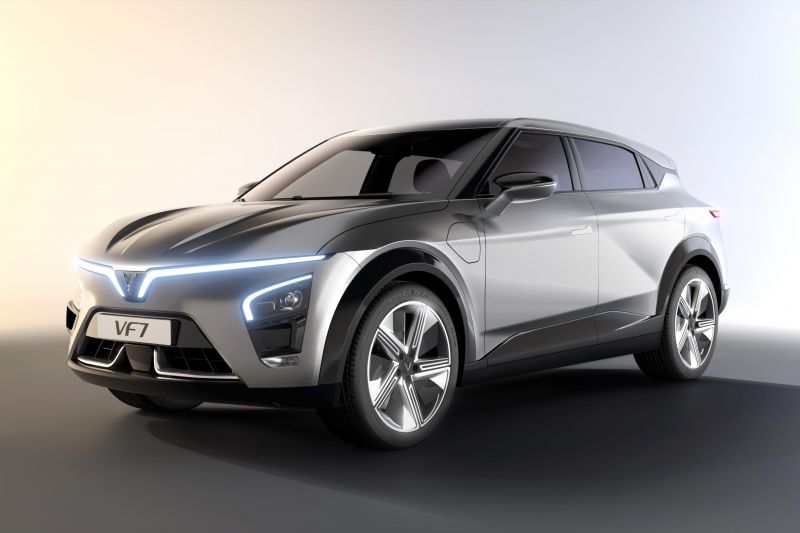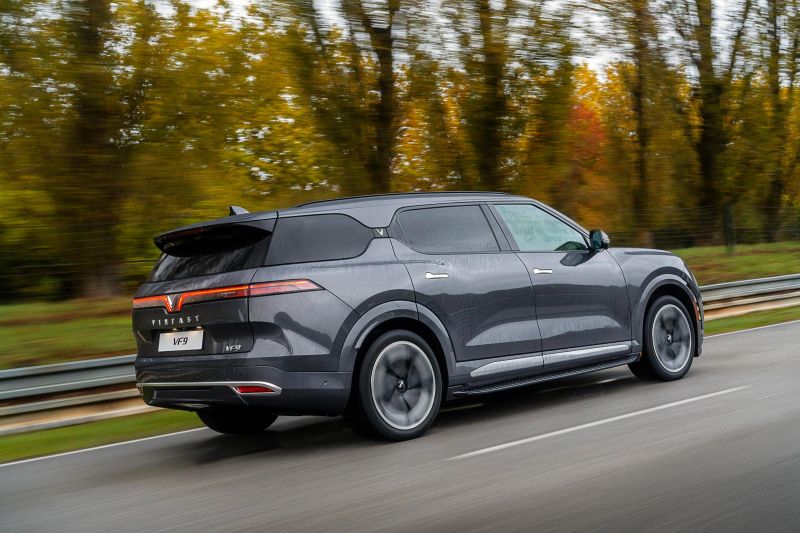VinFast‘s Wall Street debut on Tuesday saw it reach a valuation of US$85 billion (A$133.28bn), more than the Volkswagen Group and almost twice as much as Ford or General Motors.
Despite share prices dropping by more than 20 per cent since then, the Vietnamese electric vehicle (EV) manufacturer still has a higher market capitalisation than those established automakers.
VinFast still has yet to turn a profit, and posted a loss of US$2.1bn (A$3.29bn) last year.
The company delivered only 11,300 vehicles in the first half of the year. It aims to sell 50,000 by the end of the year.
Since beginning EV production, it has delivered over 19,000 electric vehicles, comprising the VF e34, VF 5, VF 8 and VF 9. It’s readying three additional EVs, called the VF 3, VF 6 and VF 7.
It has also broken ground this year on a new EV manufacturing facility in the US state of North Carolina, set to be operational by 2025, and has entered the Canadian and European markets.
Currently, all VinFast vehicles are produced at the company’s Hai Phong plant in Vietnam, which opened in 2019.
VinFast now has 122 showrooms globally, and sells vehicles directly rather than through more traditional dealerships. It’s now looking to move to a hybrid model whereby it has both its own showrooms and also partners with distributors and dealer groups in different markets.
The automotive arm of the sprawling Vietnamese giant VinGroup merged with Black Space Acquisition Co to form a special purpose acquisition company (SPAC) for the float.
A SPAC is a type of shell company that raises money through an initial public offering which is then used to finance a merger or acquisition within a specified period of time, allowing a company to raise money without going through the traditional IPO process.
Other companies that have used this strategy include Polestar and Lucid. The latter is now valued at under US$15 billion, nearly 40 per cent less than its initial SPAC valuation in 2021.
Reuters reports 99 per cent of VinFast is controlled by its founder, Pham Nhat Vuong, making for a tiny float that could be subject to more volatility.
The company has gotten off to a rocky start in the critical US market, despite the lofty valuation.
Just 128 examples of its VF 8 crossover were registered from January to May, and the company has responded by cutting prices and offering lease deals.
The VF 8, the brand’s first vehicle in the US market, has also received numerous critical reviews from automotive media.
VinFast is best known to Australians as the company that briefly set up shop here, buying the Lang Lang proving ground previously owned by Holden, before closing its Port Melbourne design and engineering office in 2021.
There had been plans for the company to develop its next-generation petrol and electric cars on Australian soil with a staff of around 100 ex-Ford, Holden, Jaguar Land Rover and Toyota employees.
This Aussie plan was squashed with the company pivoting its focus to North America and Europe.
Still a fresh face on the automotive scene, VinFast was founded in 2017 by property developer Phạm Nhật Vượng, who is Vietnam’s first billionaire with a net worth of around $6.5 billion.
The company initially produced sedans and SUVs based heavily on BMWs, before ending production of combustion-powered vehicles and beginning its rollout of electric SUVs.















